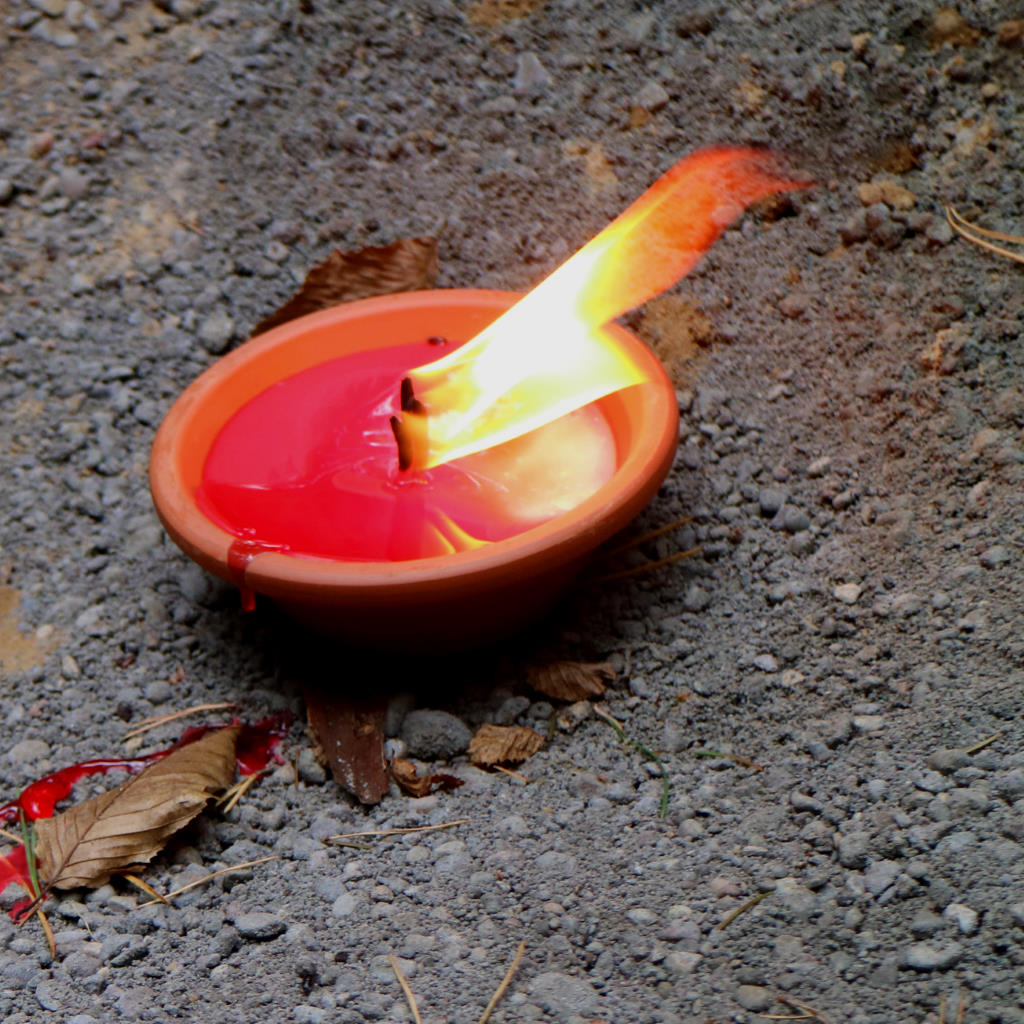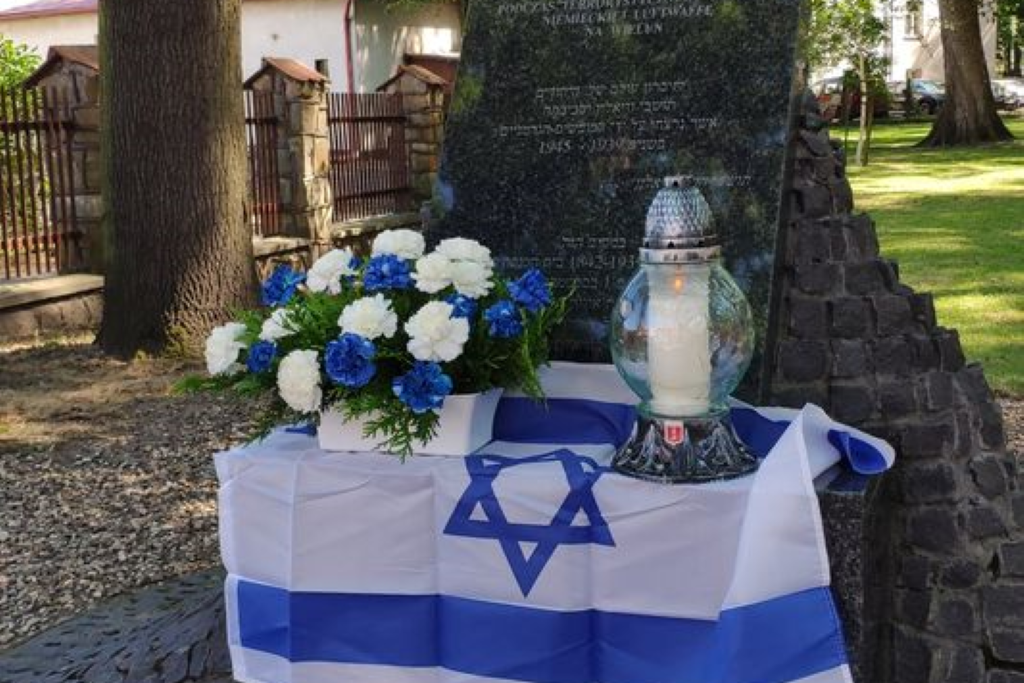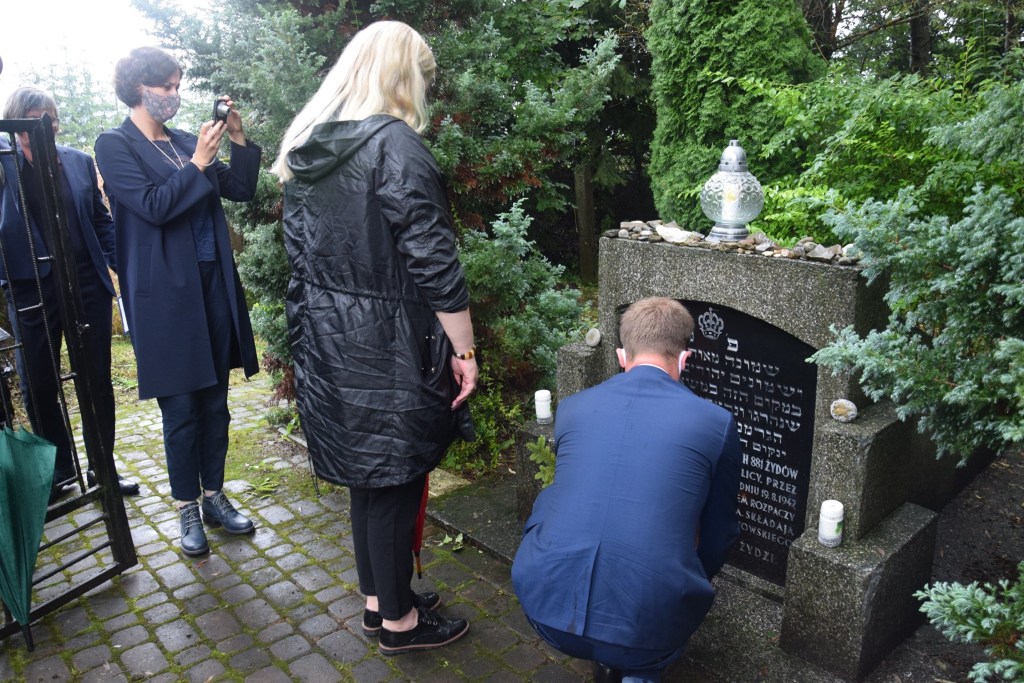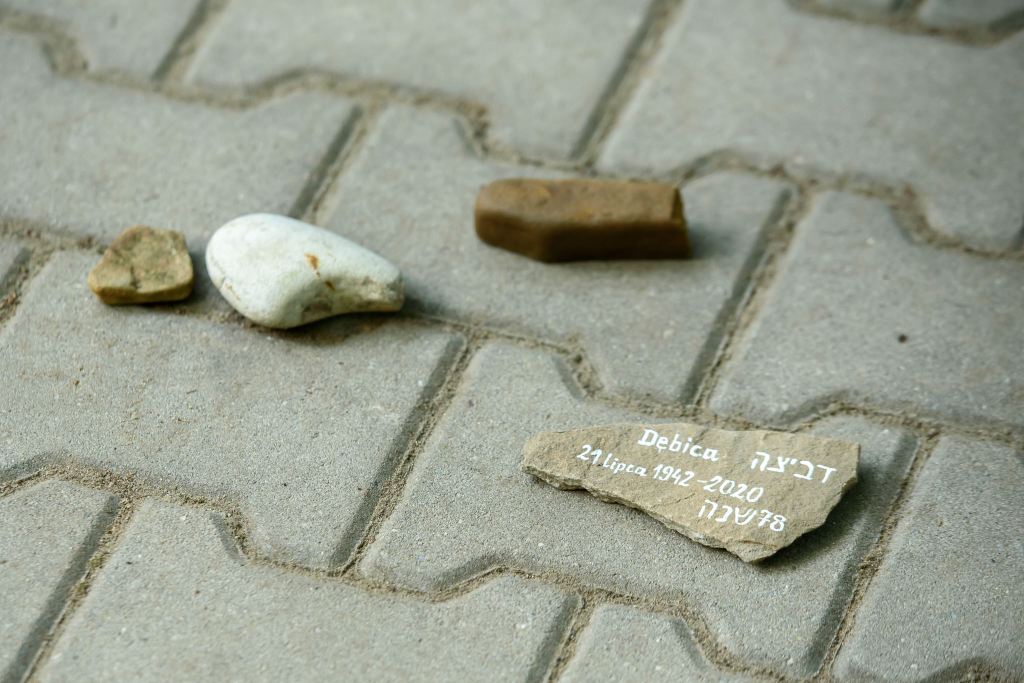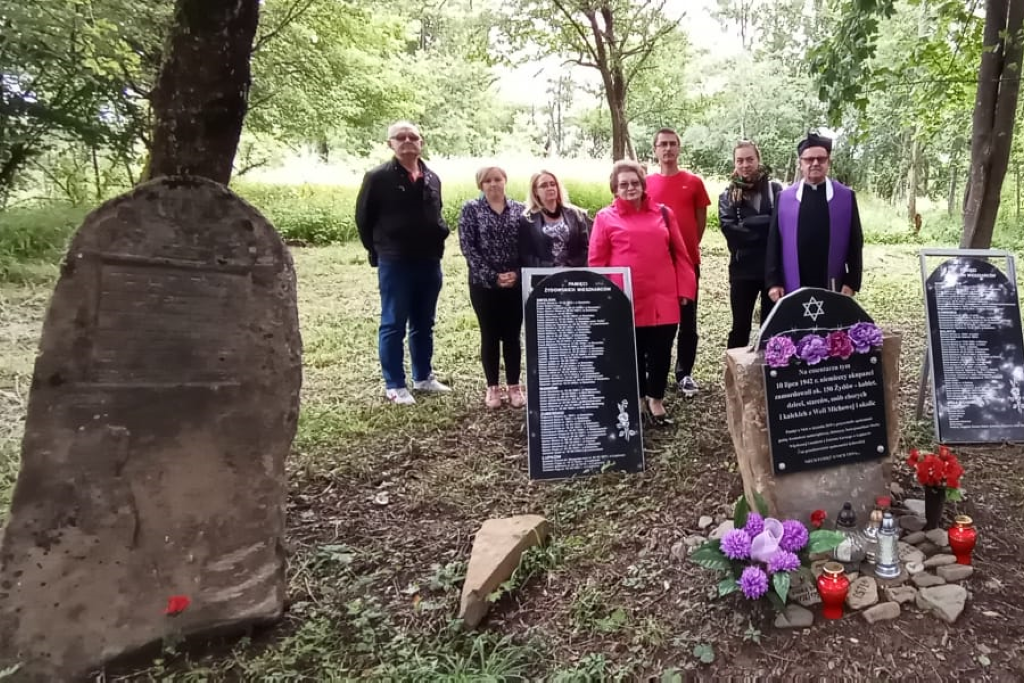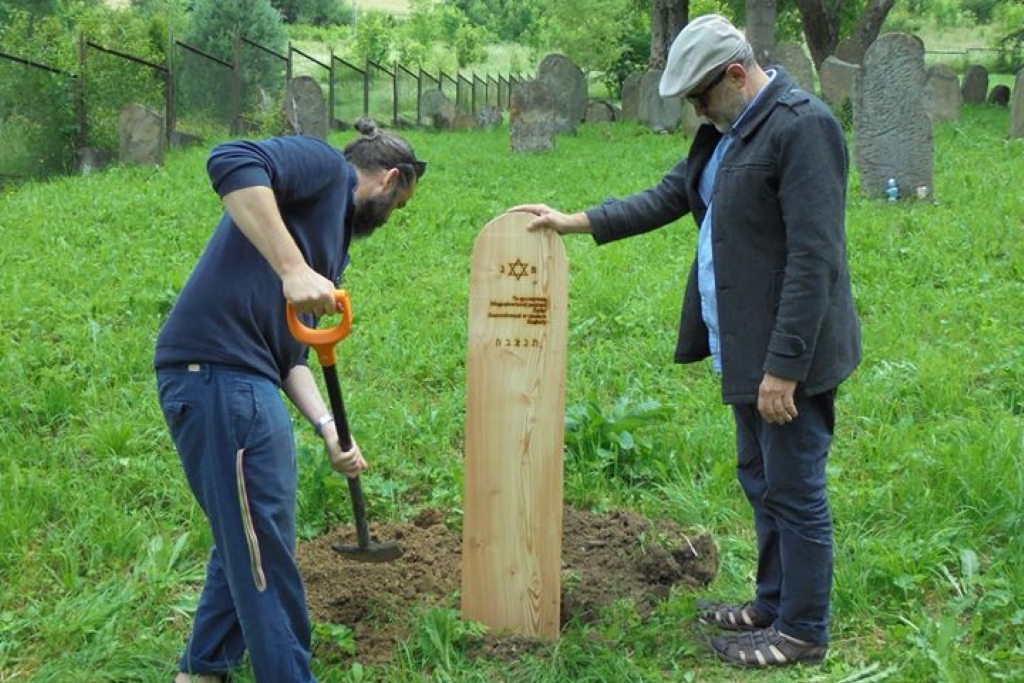Throughout the summer Leaders of Dialogue are organizing commemorations on the anniversaries of deportations and liquidations of ghettos in their town. Despite restrictions resulting from the current health crisis, they continue to bring back the memory of Jewish inhabitants of their towns. For instance, in Bialystok the Museum of the Jews of Bialystok and the Region organized a two day commemoration entitled “Absent Family” to honor the anniversary of the beginning of the Białystok Ghetto Uprising. The event invited all to learn about this important Polish/Jewish history of the town. The organizers planned a number of lectures, concerts, films, and performances, all happening in the building of the former Jewish trade school Tarbut at Lipowa 41D. Check out their website at www.jewishbialystok.pl and Facebook page for more information.
On Monday, August 3rd, members of the Cukeman’s Gate Foundation organized a ceremony commemorating the 77th anniversary of the liquidation of the Będzin ghetto. The ceremony honoring the memory of the Będzin Jews killed in the Shoah was open to the public. The organizers invited everyone to put flowers and light candles in memory of those who perished. Check out the photos of the event here and the film here.
Leaders from Otwock, Brzesko, Rymanów, and Pułtusk planned Marches of Rememberence organized in a way that ensured safety of all the participants. The March of Remembrance in Rymanów held on August 13 began at the town square. In Otwock, the March took place on August 19, at 7 p.m., and began at the intersection of Reymonta and Samorządowa streets.
Apart from Marches, another way that Leaders are honoring the memory of Jewish communities of their towns are exhibitions. In Dukla, Jacek Koszczan and the Cross-border Cultural Exchange Center presented an exhibition entitled “On your land I’m singing the song of your people: The Lives of Jews from Podkarpacie.” Before the opening, the organizers planned a prayer at the local Jewish cemetery scheduled for August 13. In Biecz, Krzysztof Przybyłowicz organizedan outdoor exhibition focusing on the Shoah, which was available for visitors on the town market square starting August 14. The exhibition was open for 4 days, equal to the number of days Biecz Jews spent awaiting deportation to Bełżec.
In Czarny Dunajec, as part of the “People, Not Numbers” project, the opening ceremony of the newly restored Jewish cemetery included also the unveiling of a new monument featuring the names of Holocaust victims from the area, as well as tombstones placed to honor the victims buried in mass graves. The project also involved ceremonies at previously restored Jewish cemeteries in Grybów and Krościenko near Dunajec.
The Leaders associated with the Shetl of Tsanz have been organizing Assemblies of memory in Stary Sącz, Limanowa, Gorlice, and Nowy Sącz each year. This year, due to the unpredictable health situation, they decided to change the formula of the commemoration and invite local residents to place flowers, stones, or light candles at local monuments to Jewish suffering.
We encourage you to follow the updates and participate in the events organized by the Leaders. We shall be adding news of other events and commemorations here in the upcoming weeks, as well as reports of events.



